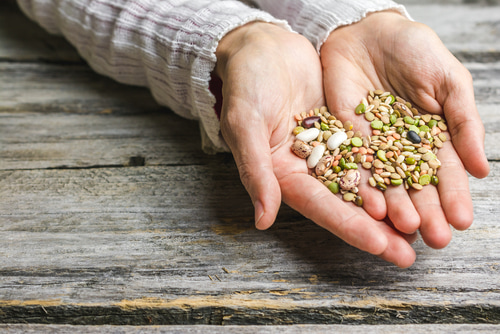Blog
The best anti-inflammatory foods to include in your diet

Inflammation is a natural response of the body, but when it becomes chronic, it can lead to diseases such as heart disease, diabetes, or arthritis. Fortunately, certain foods rich in antioxidants, essential fatty acids, and anti-inflammatory compounds can help reduce inflammation and prevent its negative effects, thus promoting a healthier life. Learn more about some of them in this article from KuokoKitchen.
What Are Anti-Inflammatory Foods?
Anti-inflammatory foods are those that, when consumed, help reduce inflammation in the body. This chronic inflammation can damage cells, tissues, and organs, leading to long-term diseases. Anti-inflammatory foods, therefore, contribute to improving overall health and preventing various conditions. A diet that includes these foods can be an excellent tool to keep the body in balance and free from harmful inflammation.
1. Fresh Fruits and Vegetables
Fresh fruits and vegetables are essential in an anti-inflammatory diet, as they are rich in antioxidants, vitamins, and minerals that help reduce inflammation. Leafy greens like spinach and broccoli, as well as berries and citrus fruits, provide anti-inflammatory compounds and vitamin C. Additionally, these options are an excellent source of fiber, which is crucial for digestive health.
2. Fatty Fish
Fatty fish, such as salmon, sardines, and tuna, are rich in omega-3 fatty acids, which have powerful anti-inflammatory properties. These fatty acids help reduce inflammation in the body and are associated with a lower risk of chronic inflammatory diseases like arthritis. Including these fish in your diet at least twice a week can relieve pain, reduce stiffness, and improve joint function.
 3. Nuts and Seeds
3. Nuts and Seeds
Nuts and seeds are another excellent source of healthy fats and antioxidants. Walnuts, almonds, hazelnuts, and pistachios are rich in omega-3 fatty acids and antioxidants, which help reduce inflammation. In particular, walnuts are an excellent choice due to their content of alpha-linolenic acid (ALA), a type of omega-3 with proven anti-inflammatory effects.
Chia, flax, and pumpkin seeds are also rich in essential fatty acids and fiber, and can be an ideal addition to salads, yogurts, or smoothies. Incorporating nuts and seeds into your daily diet is an easy and delicious way to fight inflammation.
4. Extra Virgin Olive Oil
Extra virgin olive oil is essential in anti-inflammatory diets, especially in the Mediterranean diet, due to its content of phenolic compounds like oleocanthal, which has anti-inflammatory effects similar to ibuprofen. Additionally, it is an excellent source of monounsaturated fats that benefit cardiovascular health. It is recommended to use it in salads, stews, and other dishes, as regular consumption significantly improves health.
5. Spices and Herbs
Spices and herbs not only add flavor to your dishes but also are potent natural anti-inflammatories. Turmeric is one of the most well-known spices in this area due to its content of curcumin, a compound that has shown strong anti-inflammatory properties. Curcumin inhibits the production of inflammatory molecules in the body, making it an excellent ally for reducing inflammation.
Ginger is another root with remarkable anti-inflammatory properties. It contains gingerol, a compound with antioxidant and anti-inflammatory effects. Other herbs like rosemary, oregano, and thyme also contain compounds that help reduce inflammation and improve overall health.
6. Legumes
Legumes, such as lentils, chickpeas, and beans, are an excellent source of fiber and plant-based proteins. Additionally, legumes have been shown to have a positive effect on inflammation. Studies suggest that diets rich in legumes reduce inflammation levels in the body, making them an excellent choice for those looking to reduce inflammation and improve health.
Incorporating legumes into salads, soups, or stews is an easy and cost-effective way to enjoy their anti-inflammatory benefits.
7. Whole Grains
Whole grains, such as oats, brown rice, and quinoa, are rich in fiber and antioxidants, making them an excellent choice for reducing inflammation. Fiber not only supports digestion but also helps maintain a healthy gut microbiome, which is closely linked to reduced inflammation in the body.
Incorporating anti-inflammatory foods into your diet is key to reducing inflammation and preventing chronic diseases. Foods like fruits, vegetables, fatty fish, nuts, olive oil, and spices are excellent allies in this process. Anti-inflammatory diets not only focus on avoiding certain foods but also on including those that promote long-term health, helping to maintain a healthier and more active life.


